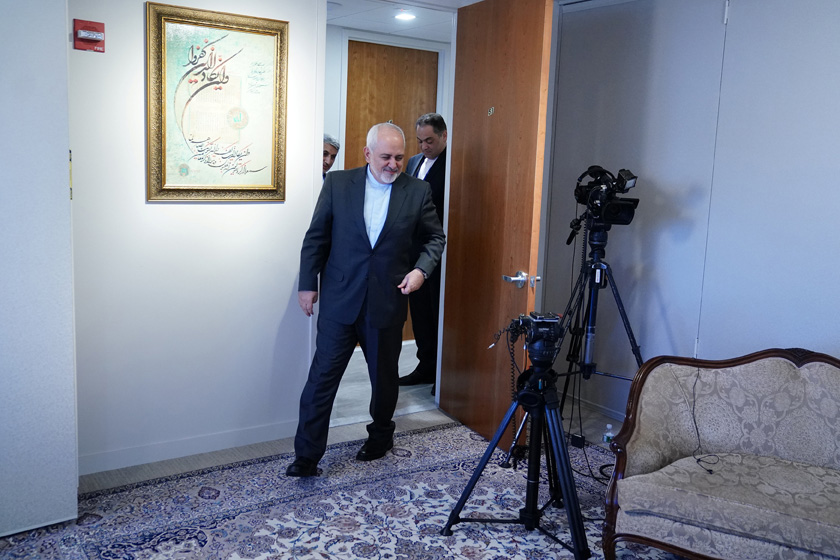Iran’s human bargaining chips

Iran’s Foreign Minister Mohammad Javad Zarif has offered a prisoner swap, using the fate of hostages in Iran as a bargaining chip in negotiations with the US.
It is telling that none of the American-Iranians released from US prisons in the most recent prisoner swap had any interest in returning to Iran or giving up their US citizenship. Those freed in Iran, meanwhile, could not get out of the country fast enough, and a special plane was provided to take them to Switzerland. Tehran released journalist Jason Rezaian, who had been convicted of espionage; former Marine Corps infantryman Amir Hekmati, jailed for co-operating with hostile governments; Christian pastor Saeed Abedini, who was convicted of violating national security; and former Iranian infantryman Nosratollah Khosravi-Roodsari, who had been found guilty of breaking alcohol laws and was awaiting trial on espionage charges.
In return, the US released Bahram Mechanic, Khosrow Afghahi and Tooraj Faridi, who were charged with sanctions violations; Nader Modanlo, who was convicted of illicit business deals that helped Iran launch its Sina-1 satellite in 2005; and Arash Ghahreman, who was convicted of money laundering and sanctions violations for exporting navigation equipment to Iran; Nima Golestaneh, who was jailed for hacking; and Ali Saboonchi, who was convicted of sanctions violations. American student and researcher Matthew Trevithick was allowed to leave Iran under a separate arrangement.
It is telling that none of the American-Iranians released from US prisons in the most recent prisoner swap had any interest in returning to Iran or giving up their US citizenship.
Camelia Entekhabifard
In addition, the US government withdrew the charges and Interpol red notices against 14 Iranians living outside of the US, “for whom it was assessed that extradition requests were unlikely to be successful.”
None of those released by the US were particularly well known to the Iranian public, and we do not know exactly who Zarif has in mind to include in a new prisoner swap.
At this stage, it seems like the regime in Tehran perhaps hopes to secure some benefits from releasing Michael White, from California, a US Navy veteran who has been held in the city of Mashhad on unspecified charges since last July. The 46 -year-old was arrested while visiting his Iranian girlfriend.
Then there is Nizar Zakka, a Lebanese national and a permanent resident of the US, who was arrested in 2015, and Xiyue Wang, an American, a history student at Princeton University who was jailed for 10 years in 2017.
Perhaps they are among those whose fates Zarif wants to negotiate with the US. It is not clear whether Siamak Namazi might also be on that list. The 46-year-old businessman, who promoted closer ties between Iran and the West, was arrested in Oct. 2015. Like others with dual Iranian and US citizenship who have been jailed, he and his 82-year-old father, Baquer, faced secret charges during closed-door trials in Iran’s Revolutionary Court, which handles cases involving alleged attempts to overthrow the government.
It remains to be seen what souvenir Zarif will take back to his bosses in Tehran from New York: More sanctions or a prisoner-swap deal?
• Camelia Entekhabifard is an Iranian-American journalist, political commentator and author of Camelia: Save Yourself By Telling the Truth (Seven Stories Press, 2008).
Twitter: @CameliaFard









































